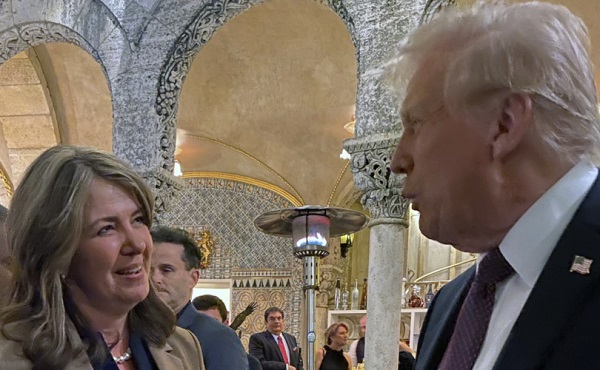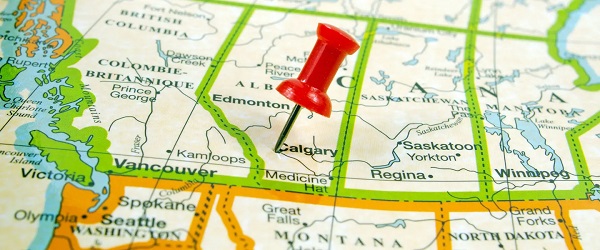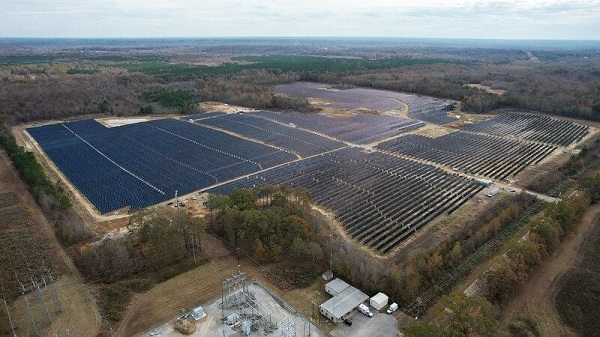Business
Disney scrambles as young men reject DEI-filled franchises

Quick Hit:
A new op-ed argues Disney’s progressive push has driven away the very audience its biggest franchises should naturally attract: young men. Writer Zachary Faria says the company is now scrambling to undo the damage caused by years of prioritizing “diversity, equity, and inclusion” over storytelling.
Key Details:
- Zachary Faria of the Washington Examiner writes that Disney has made its blockbuster franchises “toxic to young men” through DEI-driven changes.
- Faria cites examples across Marvel, Star Wars, and Indiana Jones where traditional heroes were replaced, demeaned, or sidelined in favor of “ideological propaganda.”
- He argues Disney has “no one to blame but itself” for alienating its male audience and is now considering original films to try to win them back.
Diving Deeper:
In a blistering critique published in the Washington Examiner, columnist Zachary Faria argues Disney’s embrace of progressive politics has caused the company to alienate one of its most natural audiences: young men between the ages of 13 and 28. “Disney’s progressive ideology has alienated young men. The company now recognizes that its own franchises are toxic to that audience,” Faria wrote.
Disney executives are reportedly brainstorming ways to bring young men back to theaters, despite owning some of the most male-oriented franchises in modern history. “You would think that this wouldn’t be very difficult: Disney owns Marvel, Star Wars, and Indiana Jones, among other franchises that should all naturally appeal to a younger, male audience,” Faria observed.
Instead, he says the company has used those franchises as vehicles for divisive politics. “Marvel went from being defined by Iron Man, Captain America, and Thor to being defined by mediocre Disney+ series mired in DEI propaganda,” Faria noted. He pointed specifically to the Iron Heart series, where “a young black girl (who is also a criminal) [becomes] the new Iron Man, as she dismisses her predecessor as being nothing more than a privileged rich man.”
The same pattern, he argues, can be seen in Lucasfilm and Indiana Jones. Harrison Ford’s iconic hero was supplanted by a female co-star “who the latest bomb of a film positions as morally superior to him.” Meanwhile, The Acolyte turned the Jedi into villains while portraying “the heroic lesbian space witch cult at the heart of the movie.”
For Faria, this strategy is backfiring. “With those brand names in its pocket, Disney should have been playing on easy mode when it came to winning over young male viewers. Instead, Disney has made those franchises so toxic that it is reportedly looking for original film concepts to win over young men,” he wrote. He added that it is now “easier to come up with a completely original story that will appeal to young men than it is to appeal to them with a Star Wars film.”
Faria concluded with a sharp comparison between the entertainment giant and the political left: “Disney, much like the Democratic Party, has embraced an ideology that belittles and ostracizes young men, and is now facing the reality that young men no longer want anything to do with its brand. Disney is trying to figure out how to win over the people it purposefully alienated over the last several years, and it has no one to blame but itself.”
“Disney+ Day” by Anthony Quintano licensed under (CC BY-SA 2.0)
Alberta
Good Sense Beats Team Canada’s Hysteria

In the tariff crisis of 2025, Canada tested its mettle, and the result was revealing. At the center stood Premier Danielle Smith, who chose steady, substantive leadership over juvenile posturing and theatrical bravado. Ottawa’s Prime Minister Mark Carney and Alberta NDP leader Naheed Nenshi indulged in overly-inflated martial rhetoric and fear-driven posturing.
Carney’s tactics have failed to secure any meaningful results, and he now proposes to do what Premier Smith was doing from the start. My purpose is not to flatter Alberta’s premier, but to show the self-serving strategy and base tactics of those who attacked her.
In short, given the state manipulation of media and the self-inflicted amnesia of the age, I would like to document some of what the progressive politicians wanted to do, and what they said, to remind us of the shallow leadership in the country, and to say what the mainstream media isn’t going to say. Danielle Smith’s calm, clear-eyed approach was prudent leadership. The rest was a useless political spectacle geared exclusively to improve the electoral fortunes of the ruling Party in Ottawa. The strategy was devised to serve the interests of the federal Liberal Party, not the interests of Canadians.
When the Storm Hit: Carney’s Rhetoric Without Results
The shock arrived in January, though the first stab was delivered to Justin the previous Fall when he visited Trump in Mar-a-Lago on November 29th. Donald Trump, newly back in the White House, announced a raft of tariffs on Canadian steel and aluminum and threatened levies on agriculture and energy-related products. The move struck at the very architecture of the United States–Mexico–Canada Agreement (USMCA), the framework meant to stabilize continental trade. Canada sends three-quarters of its exports to the United States; the relationship is not optional or trivial; it is crucial. This dependency deepened during the Trudeau years, notably in his refusal to approve infrastructure for selling Canadian energy overseas and in declining pleas from Europeans to sell them natural gas. Ottawa likes to talk about diversification, but when three in four dollars of export income depend on one customer, the arithmetic speaks for itself.
Carney, still in the honeymoon phase of his premiership, treated the shock as an opportunity to prove his campaign rhetoric. During debates, he had cast himself as the lone Canadian able to face down Trump, a Trump-whisperer of sorts, boasting of his international experience as governor of the Bank of England and promising to “crush” the Americans in trade negotiations. When the cameras turned to him, he reached for the hyperbolic language of battle.
On March 27, 2025, Prime Minister Carney told reporters: “Nothing is off the table regarding possible countermeasures.” Carney declared on that same day that “the era of close economic integration and security cooperation with the United States is over,” following an announcement of sweeping U.S. auto tariffs. This was a radical policy shift in the history of the country, an announcement made without any debate in the public square or in Parliament. The longstanding Canada–U.S. partnership built on deep integration was no longer intact, and there would be “no turning back” from this shift. Many chose to celebrate this announcement without considering the consequences.
Four days later, on March 31, Carney expanded the message in a more impassioned speech: “We won’t back down. We will respond forcefully. Nothing is off the table to defend our workers and our country.” The environmentalist woke banker was now the defender of Canada’s working class, the same working class he declared seditious for questioning government policy during the truckers’ protest.
The language was now definitive, dramatic, and even intoxicating to some Canadians. Ottawa reporters applauded the elbows-up posture. But it was rhetoric without a plan.

Danielle Smith’s Steady Course: Strategy Over Spectacle
Smith’s view of the crisis was rooted not in theatre but in facts. Alberta exports over 3.3 million barrels of oil a day to the United States. That crude feeds refineries in the Midwest and the Gulf Coast, which in turn supply gasoline and diesel back into Canadian markets. Oil is not simply Alberta’s business; it is the circulatory system of the North American economy. To threaten to cut it off would be to shoot ourselves in the leg to prove a point.
Smith said as much at press conferences in mid-January. She warned that if Ottawa tried to embargo energy exports as retaliation, the fallout would be national: “Refineries in Ontario and Quebec, industries across the country, all depend on Alberta’s oil. Empty threats may make headlines, but they won’t keep Canadians working.”
She was clear that oil must not become a weapon. She was also pointing out the crucial strategic reality that, citing oil flows to the US, one would have to cut oil flows to Eastern Canadian markets from Alberta, an absurd way to hurt Canada’s largest market for the sake of hurting Americans. Who negotiates by putting a loaded weapon to their own head?
If Trump was enlisting chaos, Danielle Smith understood that bringing more chaos into the equation would only serve the interests of those weaponizing chaos: “Our energy exports are a source of stability, not leverage.”
Smith’s rationale ran deeper than provincial parochialism; it rested on the realistic understanding that energy flows sustain industries coast-to-coast. Instead of using oil as a cudgel, she pressed for engagement. Her trip to Mar-a-Lago, facilitated by Kevin O’Leary, was ridiculed by critics as social climbing. But Smith’s purpose was straightforward: to remind Trump and his circle that Alberta’s oil kept America’s economy moving, and that undermining that relationship would hurt both sides.
It was not glamorous politics. It did not satisfy the simplistic appetite for “elbows up” or the primal need to see Canada throw punches. But it was prudent. It sought to preserve what mattered most: stability, credibility, and the livelihoods tied to cross-border trade.
Nenshi’s Alarmism: From Existential Threats to Boycott Appeal
But not all Alberta politicians are endowed with the common sense and good judgment that Premier Smith showed in this trade conflict with the US. If Carney set the hyperbolic tone in Ottawa, Naheed Nenshi amplified it from Edmonton. His rhetoric soared to near-apocalyptic levels when he told reporters the US tariffs represented the possibility of demise: “These tariffs are an existential threat to Canada’s economy and way of life.”
Such language is typically reserved for nuclear war or famine, not tariff skirmishes. Nenshi displayed no understanding of how Canadian tariffs on the US would hurt Canadian workers the most. By invoking existential peril, Nenshi helped to transform a serious but manageable dispute into an exaggerated drama of survival. The effect was to raise anxiety, to send his constituents into spastic bouts, but not to offer solutions.
In his typical boisterous way, He went further in mocking Smith personally about the premier’s Mar-a-Lago outreach: “It was just a balls-and-parties tour.”
This was not a critique; it was juvenile taunting. It sought only to diminish Smith by ridicule. Beyond that, he urged Albertans to “buy Canadian-made goods” in defiance of “American economic aggression.” This had populist resonance—shop patriotically, hurt the Americans where it counts. But its undertone was darker. It cast American producers as enemies rather than partners, sliding toward the kind of cultural hostility that corrodes continental goodwill. That, and the fact that it is the wrong strategy: Canada can never become wealthier and better only consuming what it produces.
Together with Carney and others, Nenshi’s words painted a picture of politics as theatre: existential peril, carnival mockery, economic nationalism. It was louder than Smith’s steady counsel, but it was also shallower. What it offered in emotional release, it lacked in constructive substance.
Lukaszuk’s Overheated Rebuke: “Shameful” and “Without Shame”
Thomas Lukaszuk, Alberta’s deputy premier in the most corrupt government in Alberta’s history, joined the chorus with his own brand of vitriol. He lambasted Smith’s Mar-a-Lago trip as deceitful: “Ms. Smith is without shame… it was probably inevitable she would show up at the side of Mr. Trump.”
He accused her of disguising the visit as a private vacation, calling it “shameful” and suggesting it was “perhaps an intentional attempt to deceive.” He demanded transparency: if she met with Trump and O’Leary, why was it not cleared with federal or provincial officials?
Lukaszuk’s barbs were not a critique of trade policy; they were an indictment of Smith’s character, almost suggesting Smith was treasonous. By casting her outreach as dishonesty, he implied she was not merely mistaken but disloyal. The attack was moralistic, not analytic. And it was hyperbolic: to suggest that a premier speaking to a U.S. president about Alberta’s energy could be “without shame” is to invert priorities and to show a warped understanding of political activity from executive places. Where Smith sought stability, Lukaszuk indulged outrage. Where she made arguments, he delivered invective. Smith prevailed.
The Federal Failure: Loud Words, No Leverage
The accurate measure of Ottawa’s approach lies in the success of its outcomes. In January, Carney promised “maximum impact” and “nothing off the table.” By March, the Americans had not budged. By summer, Carney was already preparing to climb down.
On August 22, 2025, during a press conference announcing a rollback of Canada’s retaliatory tariffs, Carney said: “Canada and the U.S. have now re-established free trade for the vast majority of our goods.”
The announcement was spun as a win—“we have restored free trade for the vast majority of goods.” But in fact, it was a concession. Trump had not withdrawn his supposedly existence-threatening tariffs. But Canada had withdrawn its retaliation. Ottawa had failed to secure a deal. The country was left where Smith had said it should remain: keep the arteries of trade open, defend a few vital sectors, and avoid damaging our own consumers.
The gap between promise and performance was humiliating. Carney had campaigned as the expert negotiator who alone could handle Trump. He had threatened “crush force” against the Americans, to deliver maximum pain. In the end, he managed a quiet surrender, hoping Canadians would mistake retreat for strategy. Trump, for his part, gloated. Canada, he said, had “come to its senses.” He took credit for Carney’s electoral success. The bluster of winter had dissolved into a whimper by summer.
Prime Minister Carney now claims he obtained the best deal of any country for Canada, but that is not true. Canada has exactly what Mexico has, except that Canada’s oil has a lower US tariff rate imposed because Danielle Smith negotiated it.
Who Showed Judgment
Strip away the noise, and the contrast is stark. Danielle Smith, much maligned, displayed judgment. She prioritized stability, preserved Alberta’s interests, and in doing so also sought to protect the national interest. She spoke frankly about the costs of empty, performative retaliation to the national economy. From the start, she cautioned against “empty threats.” She argued that weaponizing oil would trigger a unity crisis. She maintained that the priority was to keep trade stable, not to win headlines with elbows-up theatrics. Ottawa mocked her, pundits accused her of sabotage, Nenshi ridiculed her as unserious, and Lukaszuk branded her “shameful.” Yet months later, Ottawa adopted precisely the framework she had outlined.
Carney offered bluster, then quietly retreated. Nenshi offered mockery and alarms. Lukaszuk offered moral outrage. All three contributed to a theatre of hysteria that eroded Canada’s credibility abroad and coarsened discourse at home in ways that are damaging to the political fabric of the Canadian community.
Smith showed an understanding of how present action shapes future positions. Standing against the tide, she offered thoughtful solutions. Not loud, not glamorous—but steady, serious, and correct. She was punished for exposing the nonsensical nature of their exaggerated position. And in that punishment lies her vindication.
A Debt of Apology
What Alberta and its premier received instead was abuse. Smith was called a traitor, accused of siding with Trump, and branded “shameful.” People took to social media to insult Albertans, suggesting that it was no surprise the premier was a traitor because Albertans are traitors. She was ridiculed for rationally trying diplomacy. The verdict of hindsight is plain: it is Ottawa and its allies who owe Albertans an apology. NDP leaders like Lukaszuk and Nenshi should also apologize to the premier.
An apology, not because Smith needs it personally, but because Canadians should demand politics grounded in sound judgment, not hysteria. They deserve leaders who resist fearmongering, not indulge it. They deserve leadership that unites people, not divides them. They deserve policies that promote friendship with neighbouring nations, not encourage atavistic hatreds. They deserve debate that clarifies, not insults.
Premier Danielle Smith was right. The others were loud. And when the record is written, it will not be the theatre that matters, but the steadiness that kept Alberta and Canada from greater harm.
For the full experience, and to help us bring you more quality research and commentary, please upgrade your subscription.
Business
“SCAM OF THE CENTURY”: Trump vows to replace unreliable renewables with real energy

Quick Hit:
President Donald Trump announced Wednesday that his administration will block new wind and solar projects, arguing that “green energy” has driven record-breaking electricity cost hikes and vowing that “the days of stupidity are over.”
Key Details:
- Trump vowed to block new wind and solar projects, calling them unreliable, expensive, and harmful to farmers.
- Electricity prices have risen sharply this year, with spikes of 36.3% in Maine, 18.4% in Connecticut, and 15.2% in Utah.
- His administration has already eliminated the federal solar tax credit, frozen Biden’s “Solar for All” program, and slapped 50% tariffs on wind turbine imports.
— Trump War Room (@TrumpWarRoom) August 20, 2025
Diving Deeper:
President Trump’s latest move signals a full-scale reversal of Biden-era energy policy, with the White House framing renewables as a costly mistake rather than a solution. Trump blasted states that leaned heavily on wind and solar, pointing to what he described as “record breaking increases” in electricity costs. The president promised that under his administration, the federal government will no longer approve projects that “destroy farmland” and saddle taxpayers with subsidies.
The sharp rise in electricity prices adds weight to Trump’s argument. According to the Energy Information Administration, bills are climbing at the fastest pace in decades, with American households expected to pay an average of $1,900 annually by the end of 2025—up $219 since 2022. While industry experts note that AI-driven data center growth, aging grid infrastructure, and rising natural gas prices are also driving up costs, Trump insists that subsidized renewables are exacerbating the problem.
Trump has already taken action to roll back renewable incentives. His “One Big Beautiful Bill,” signed on July 4, eliminated the 30% solar tax credit for homeowners. He also froze the $7 billion “Solar for All” program, halted new wind and solar permits on federal land, and canceled offshore wind leasing entirely. In August, his Commerce Department ramped up tariffs on imported wind turbines, imposing a 50% rate across more than 400 new product categories.
The policy shift has delivered major setbacks to projects such as Idaho’s Lava Ridge Wind Project and New Jersey’s Atlantic Shores development, both now stalled by new permitting requirements. Trump’s team has signaled that even approved projects may be subject to review or revocation, creating uncertainty across the renewable energy sector.
While the wind and solar industry warns these measures could cost thousands of jobs and slow clean energy growth, Trump remains unmoved. He has consistently argued that America must prioritize reliable, affordable energy sources that don’t rely on foreign imports or government subsidies.
-

 Business21 hours ago
Business21 hours ago“SCAM OF THE CENTURY”: Trump vows to replace unreliable renewables with real energy
-

 Media1 day ago
Media1 day agoCBC and others refuse to stop committing unmarked crimes against journalism
-

 Business1 day ago
Business1 day ago33 per cent jump in one year! Nearly 147,000 federal bureaucrats take six-figure salary
-

 Dan McTeague1 day ago
Dan McTeague1 day ago’Net-Zero’ Carney’s going to build new pipelines? I’ll believe it when I see it!
-

 Business21 hours ago
Business21 hours agoIs Canada’s $100B+ Climate Plan Based on Shaky Science?
-

 Fraser Institute2 days ago
Fraser Institute2 days agoB.C. Indigenous land claims decision leaves British Columbians in limbo
-

 Addictions3 hours ago
Addictions3 hours agoWhy North America’s Drug Decriminalization Experiments Failed
-

 Alberta2 days ago
Alberta2 days agoCanada’s equalization program is broken and requires major overhaul








